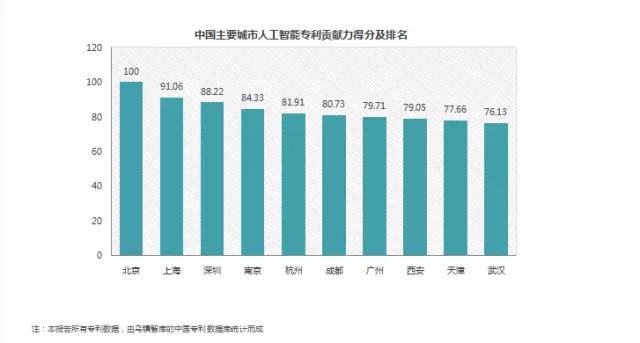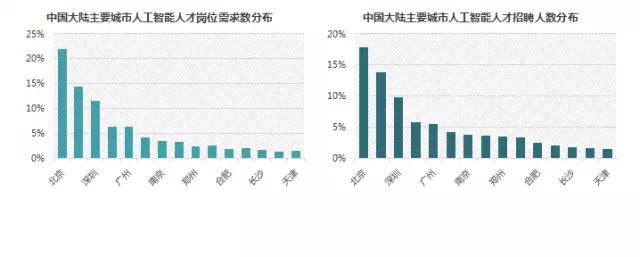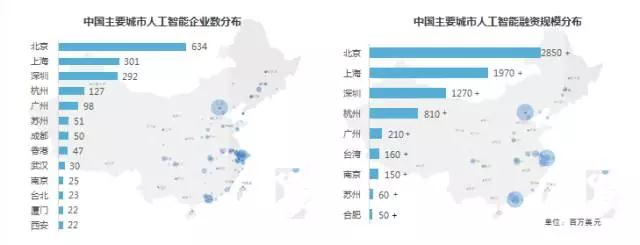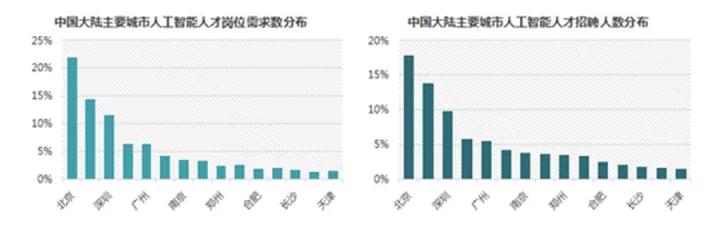CCG Published the Report on AI Talent (2017)
June 05 , 2019CCG and Wuzhen Institute jointly published the Report on AI Talent (2017) on December 4th, 2017, during the 4th World Internet Conference held in Wuzhen, Zhejiang Province. AI (artificial intelligence) was the focal point of the Conference this year, Chinese IT giants like Baidu, Alibaba and Tencent introduced a series of World-Class advanced IT achievements including AI application scenarios. Accordingly, AI talent became a hot topic among all circles of discussion.
As the report of the 19th CPC National Congress pointed out, new economic types of Internet, big data and AI could be deeply integrated with the real economy. AI has become the core driving force of a new industrial revolution, the new battlefield of international competing, and the new engine of economic development. With a high attention from the state level, the cultivation and aggregation of AI talents are nowadays the strategic priorities of so many countries. China is also accelerating the pace of training AI professionals, for the future of this high-end sphere regarding IT technologies.
The Report on AI Talent (2017) is an in-depth research that consists of several dimensions, including the global distribution of AI patents, the AI talent’s contribution, recruitment and training, the educational background and also the pay level of AI talents.

Particularly, the report illustrates the global distribution of AI patents from 1980-2016 by statistical analysis, in order to see the AI patents’ numerical growth and decline in different parts of the world in the past 3 decades. According to the report, eastern United States and Europe were in an overwhelming superiority before 2000. This is because of their early start. While after 2011, in the wake of an AI boom globally, China’s southeast coastal areas, as well as India, has gained a late-mover advantage, the number of AI patents of both two countries are first-rate among the World today.

From the report, Beijing, Shanghai and Shenzhen contribute most to the AI patents’ figure of China. Other major cities following behind are Nanjing, Hangzhou, Chengdu, Guangzhou, Xi’an, Tianjin and Wuhan. As for the demand of AI talents, Beijing, Shanghai, Shenzhen, Hangzhou and Guangzhou are crucial, they claimed for nearly 60% of posts and 52.7% of the total employment.

The map of AI talents’ demand fits another important finding in the report—the geographical distribution of AI enterprises and the AI financing scales in Chinese major cities. From 2000, the number of AI firms in Beijing has increased by 634, which is more than the sum of Shanghai and Shenzhen’s. However, as the “near-top group” cities, Shanghai and Shenzhen both have around 300 AI firms; which is nearly equal to the total of Hangzhou, Guangzhou, Suzhou and Chengdu. At the same period, the financing scale on AI enterprises of Beijing has surpassed 2.8 billion US dollars, accounts for 34% of the whole country. Besides, Shanghai stands for 24%, Shenzhen for 15.5%, and Hangzhou for 10%.

When it comes to the recruiting number, middle and small-sized enterprises are main forces; they hire 65% of AI talents in China. Based on the database of mainstream Chinese recruiting websites, more than 76% of AI enterprises in Chinese job market have less than 500 employees. Additionally, corporations with a scale of fewer than 150 people make up 50% of the whole. Whereas, big companies with more than 5000 employees are hard to find in the AI business area, the proportion is only 5%.
The University rankings of AI impacts enriched the report to a great extent, Chinese Universities and their counterparts from all over the world got their scores relating to academic and social influences in the AI area. MIT, Carnegie Mellon University and Stanford University are the top 3 most influential Universities regarding to AI. Meanwhile, the top3 in China are Tsinghua University, Peking University and Zhejiang University.
With regards to subjects that have strong ties with AI, computer science, electronic information and software engineering make the greatest talent output for this emerging filed. Furthermore, computer science is obviously the most relevant one among all these subjects mentioned above, to AI technology.
The pay level is definitely a key factor for talent aggregation. The report indicates that software architects and algorithm engineers have more chances to be well paid, the percentage of those workers who get a salary over 150,000 Yuan is 55% for the former post and 45% for the latter.
However, there is also a clear difference between cities. Generally, AI talents in Beijing and Shanghai earn 150,000~250,000 Yuan per year. While Guangzhou may not be an ideal place for AI talents with high-income expectations, AI firms there mostly offer 50,000~100,000 Yuan yearly. Compared to the two cities just mentioned, Shenzhen and Hangzhou have a well-distributed spectrum. You could not see a gap from the amount of employees with different pay levels under 250,000 per year.
The Report on AI Talent (2017) has drawn conclusions on the current problems of AI industry and talents.
First, the starting point of AI industry in China is not early enough; consequently, the increment of Chinese AI patents began to accelerate only after 2000. But the U.S. as well as European countries had made a mass of patents in the 1990s.
Second, the shortage of talents is a big puzzle, as the average annual pay that most of Chinese AI enterprises could offer is under 150,000, only a little bit higher than the average of IT industry. Given that the pay level of AI talents still has a long way for improvement, Chinese AI talents population ranked No.7 among the world. While the U.S. is in dominance, more than half of AI talents of the entire world are based in the U.S, according to the data of LinkedIn Global AI Talent Report.
The CCG research group proposed several advices for fostering AI talent cultivation and the overall development of AI industry in China. The recommendations are as following:
- Enhancing talent introduction, pay more attention to AI talents specifically, based on the current Thousand Talents Program and Ten Thousand Talents Program.
- Relaxing admittance restrictions for foreign talents, especially for AI experts.
- Striving for rights to host World-Class AI events in China, like International Joint Conference on Artificial Intelligence (IJCAI), as a way to gathering top AI professionals.
- Supporting the internationalization of Chinese AI industry associations, encouraging their integration with well-known international AI associations. Meanwhile, by opening the door for those international AI associations to settle in China, improving the resource integration competence of AI industry in the country.
- Backing IT giants like Baidu, Alibaba and Tencent to have cooperative relationships with Universities in the cultivation of AI talents.
- Encouraging Universities for more constructions of AI-related subjects, suggesting the education sector for upgrading the level of subjects crucial to AI development, according to specific circumstances
- Suggesting relevant government sectors to provide financial supports to AI enterprises for further cutting-edge R&D activities and achievement transformations, by creating more research projects or programs.
- Encouraging Chinese companies to participate in making international professional and technical standards in AI area, to take the lead of AI developments by this means.
- Advocating the social investment like Angel or VC investment on AI start-ups.
About CCG
The Center for China and Globalization (CCG) is a leading Chinese independent think tank based in Beijing. It is dedicated to the study of Chinese public policy and globalization. Boasting a strong research team, it enjoys an impressive record of publications and events with broad public policy impact. CCG’s research agenda centers on China’s growing role in the world, drawing from issues of global migration, foreign relations, international trade and investment, homegrown MNCs and other topics pertaining to regional and global governance.
Two well-known scholars, Dr. Wang Huiyao and Dr. Miao Lu, founded the CCG in 2008. Today near 100 in-house researchers and staff serve this thinking hub with subsidiaries and divisions spanning across China including Shanghai, Shenzhen, Guangzhou and Qingdao.
The think tank is co-chaired by three eminent Chinese: Long Yongtu, former Vice Minister of the Chinese Ministry of Commerce and chief negotiator for China’s accession into the WTO; He Yafei, former Vice Minister of the Chinese Ministry of Foreign Affairs; Ronnie Chen, Hong Kong tycoon and philanthropist. The advisory board represents a constellation of prominent figures from academia, business and policy-making communities at home and abroad.
According to the “2016 Global Go To Think Tank Index” by the University of Pennsylvania Think Tank and Civil Society Program (TTCSP), CCG ranked 111th of the top think tanks worldwide and was one of the world’s top 40 independent think tanks. The TTCSP along with several Chinese academic institutions rank CCG as China’s premier independent think tank.






